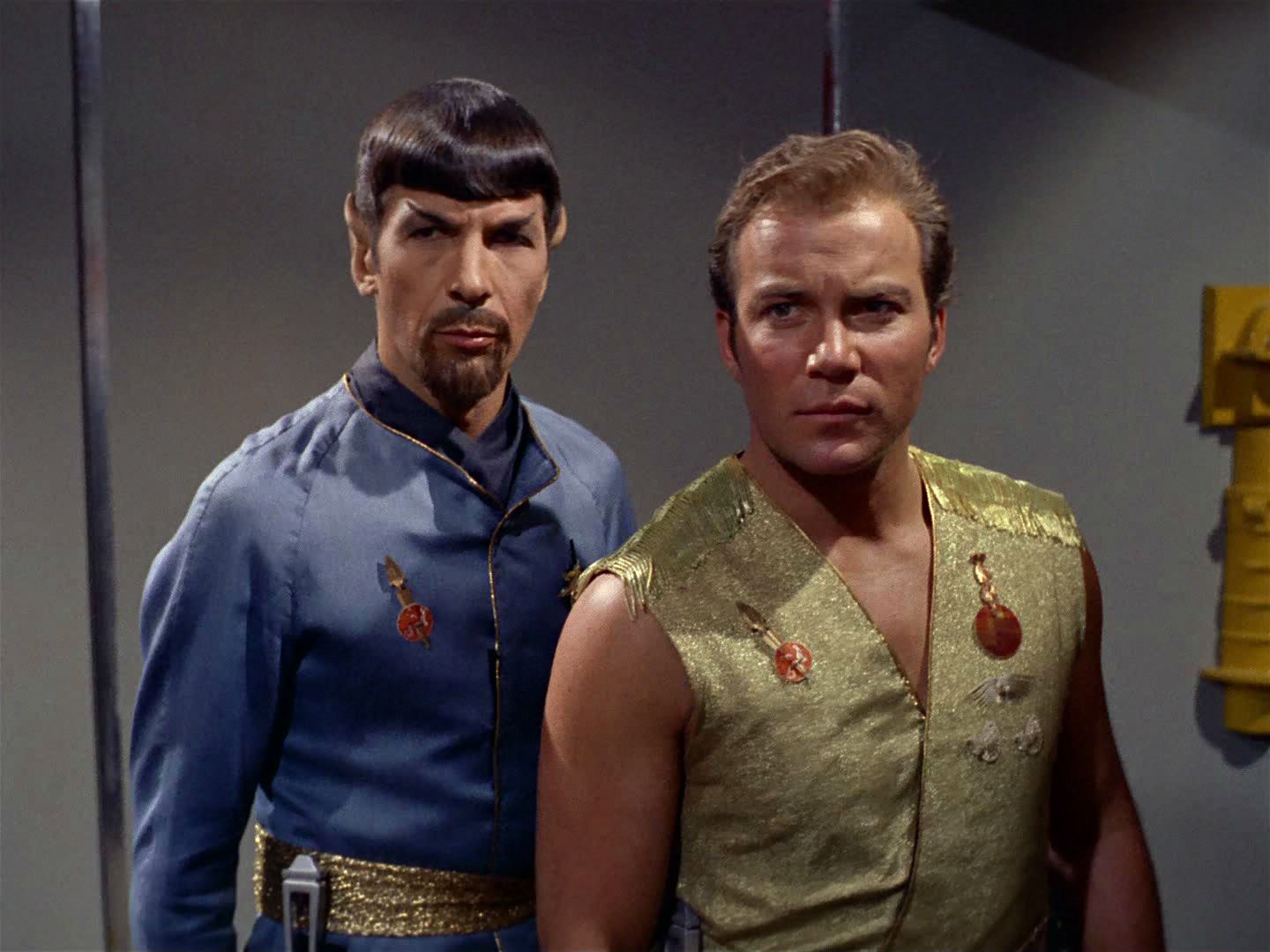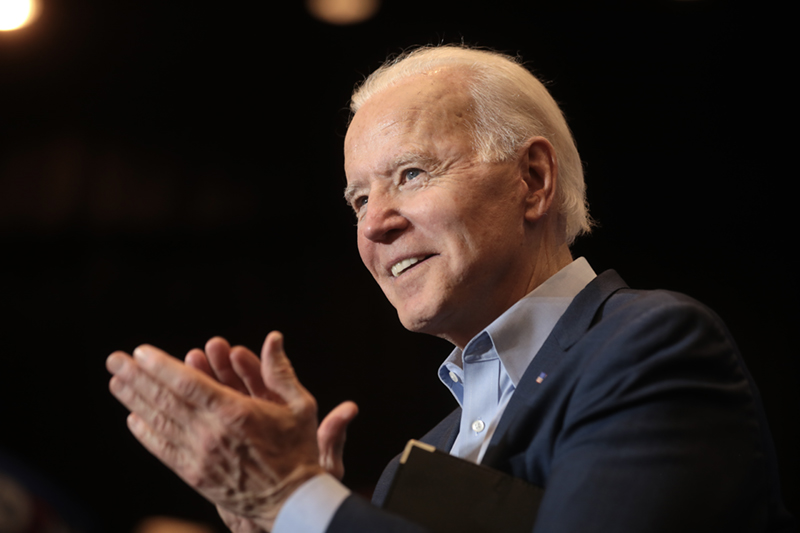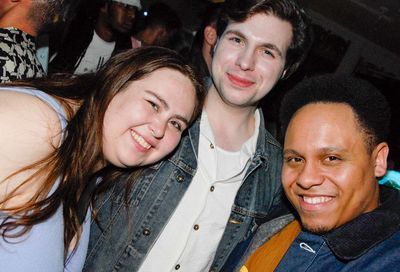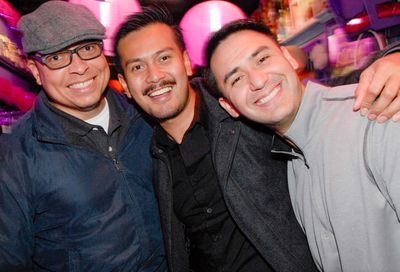Timeless Takei: An interview with George Takei
George Takei on everything from Star Trek to Leonard Bernstein to his new cat app that pokes fun at our "fake president."

George Takei speaks his truth boldly, yet with the casual command of one who has lived and made history. And this actor, activist, and master of memes is eager to tell the tale.
The stage and screen pioneer, happily married to husband Brad Altman, and forever beloved as Star Trek‘s stalwart Lieutenant Sulu, holds dear even some of the darker chapters of his and this nation’s history. He’s a survivor of the U.S. government’s internment of more than 100,000 Japanese-Americans during World War II, sent as a child, along with his parents and siblings, to live in a barbed wire-wrapped concentration camp, incarcerated for the mere fact of their ancestry.
Takei’s made a mission of preserving that past for the benefit of current and future generations. “Still to this day there are a great number of Americans who don’t know that story,” he says. “My mission [is] to prevent that sort of thing from happening again by keeping people aware of that history.”
He hastens to add that “we’re living through it all over again with Trump’s Muslim travel ban and the way he’s treating people seeking asylum and an opportunity to live a decent life, coming from Latin America.”
Passionate and energetic, the 81-year-old Takei often takes to social media to advocate for LGBTQ and civil rights, and for the fair treatment of refugees and immigrants. He’s a co-founder of the Japanese American National Museum in Los Angeles, and is a member of the landmark East West Players theater company, where he creates opportunities to tell stories that matter to him. In 2015, that included making his Broadway stage debut in Allegiance, a musical based on his experiences in internment.
“The reason that we developed Allegiance is not just to have the story understood academically, but to feel that story as human beings, to personalize it,” says Takei. “You don’t have to be Japanese-American to connect with it. We heard the sobbing of the audience, people wept at the tragic points in the drama. That’s what we wanted to do, to personalize and to humanize that story so that it’s understood in the hearts of the audience.”
In 2018, Takei has found a new and novel way to connect with his audience, launching an augmented reality app, House of Cats, featuring characters like Trumpy Cat and Meowlania. The app pokes fun at the current administration by combining, according to the House of Cats press release, “what the internet loves most: cats and politics.”
Takei has been a vocal critic of Trump and his policies, and should feel welcome in the president’s backyard joining a star-studded cast at Wolf Trap for the blowout musical event Bernstein at 100: A Celebration. For the performance, which also features the National Symphony Orchestra, conducted by Michael Barrett, and Misty Copeland and Tony Yazbeck dancing the “Dream Ballet” from On the Town, Takei will sing a number from Bernstein’s operetta Candide.
The song, “Auto-da-fe,” happens to be a humorous ditty about the Inquisition, with Takei’s character, Pangloss, on trial for his supposed sins against society. The actor endured his own very public inquisition following accusations leveled in 2017 by a former bartender and model that Takei had sexually assaulted the man after a dinner date in 1981. Takei denied the alleged misconduct, and the accuser’s account was largely recanted and discredited.
In true Takei style, the pop culture icon didn’t shy away from that or any other hot-button topic, as he spoke with Metro Weekly about living long and prospering, with no plans for slowing down.

METRO WEEKLY: At what point were you aware that Star Trek was so far ahead of its time? Did you know at the time, or was it much later?
GEORGE TAKEI: Gene Roddenberry was really an unusual producer. Certainly he was unusual in his vision and his strength in keeping that vision intact. He was also very down-to-earth, and when you’re being interviewed for a series, there’s usually a battalion of people that you’re meeting, a whole host of network people and advertising people and some of the staff writers and so forth. But in the case of Gene Roddenberry, it was just him behind his desk. He came out and ushered me to a corner sofa area to have a much more personalized conversation. He asked me about current events. Being a political person, we had a nice back and forth on the times. The 1960s was a turbulent time politically, too.
I asked him about the show and he said, “Well, I want to comment on the times,” because it was so turbulent, the peace movement during the Vietnam War and all of the turmoil that’s going on. But on television, you couldn’t do that. It’s an advertising medium. He said he came up with this idea of placing a story in the future — a science fiction story — and creating a somewhat utopian society that reflects some of the issues of the time.
For example, the episode “Let That Be Your Final Battlefield,” where one alien group is black on the right side and white on the left side, and another alien group is black on the left side and white on the right side, and they’re not able to get along with each other — that was his way of addressing metaphorically the issues of the time. I was really excited about the show, even before I got cast, once he told me what kind of show he was planning. I was absolutely desperately hoping that I got cast and when I was, just to get that excitement out of my system, I ran and ran and ran — I was a runner back then — just to exhaust myself, took a shower and I went to bed.
MW: A couple of days ago, William Shatner made headlines tweeting about his autograph policy: while he’s off the clock, no autographs. What are your thoughts on that?
TAKEI: You know, it’s the fans that made our careers what it’s become, and I think it’s bad manners, frankly, charging for it. I believe that the least we can do is just show courtesy to the fans. Even when he’s charging for autographs, there’s very little eye contact with Bill Shatner. Next, next, next — he goes by volume. He wants to move the line as fast as possible. I will look at them and have a brief chat with them so that my autograph to them has a little bit more meaning than just standing in line, you know? I ask them where they come from or what their day is like in Boise, Idaho, you know? There’s a little bit of human contact that we make, and to restrict it only to when he’s being paid and just speeding them through so he gets as many people past him as possible, is not, I think, the way to really handle the fan and actor relationship.
MW: While shooting the original series, were you out to any of your castmates?
TAKEI: This is the 1960s and I was closeted and no working actor at that time was out. If you were out, you couldn’t get cast. My colleagues knew that, but they also were sophisticated people. You know, at the end of the week, we have the wrap party, the beer is brought in and the pizzas are delivered and guys have their girlfriends or wives come, and the women have their husbands or boyfriends come, and I usually had buddies with me. And so they got it, but they were cool too. They knew that if they started talking about my being gay, that means I would fade away. Sulu would have an accident or something and I’d be out. They knew that, so they didn’t talk about it, and I appreciated that, but I knew they knew.
MW: Have you watched the new series, Star Trek: Discovery?
TAKEI: I have, indeed.
MW: How do you think they’ve handled the gay storylines?
TAKEI: You know of the hoo-ha about Star Trek Beyond, the most recent Star Trek movie that came out? When the script was being developed, the new Sulu, John Cho, called me and he said the writers are planning on paying tribute to me. By that time I was out, this was 2014, I think. And I came out in 2005, but John Cho called me and said the writers are thinking of paying tribute to you, lucky you, and they’re thinking of making Sulu gay and what do I think about that? I said, “Isn’t this movie going to be the 50th anniversary movie? Isn’t it going to be coming out in 2016 when Star Trek is going to be celebrating its 50th anniversary,” and he says “Yeah, it is.” I said, “Well, don’t you think the person who should be celebrated, who should really be paid tribute to is Gene Roddenberry,” because it was his vision and his creative genius and his hope for the future that Star Trek became such a big hit and lasted so long to celebrate something that rarely has been celebrated before, a TV series that inspired a 50-year television and feature motion picture success. And so, why are they paying tribute to me?
And the other thought I told John is Sulu was created by Gene Roddenberry as a straight character and that’s the way I played him. He had to be straight because otherwise the series would not have been sold back in the mid-60s. So, paying tribute to Gene wholly would be to really do what Gene would have done when we had the freedom and the opportunity to have gay characters. Sulu was created by Gene as a straight character. Tell the writers to be as creative and as original as Gene Roddenberry was and create a new character who is gay and has his own history. Sulu’s history is as a straight guy, heterosexual, and to infer that he is now coming out in the next movie, would be not really paying tribute to Gene Roddenberry. But Gene was always very supportive of the idea of LGBT equality.
And now that we have Star Trek: Discovery, that is treating the issue of gay people as normal members of the Starfleet team and in a leadership role, and [with] two guys living together as gay guys, just as dedicated to the forward movement, the advancement of the Starship, as anybody else.
MW: The show-runner, Alex Kurtzman, recently revealed that Spock will make an appearance in the show’s second season.
TAKEI: Spock is going to make an appearance on Discovery? Oh, how interesting.
MW: Do you know if they’re casting another Sulu?
TAKEI: I have no idea. I think it would be wonderful, but I have nothing to do with that.
MW: Speaking of John Cho, who is Korean-American, he stars in the upcoming thriller Searching, which opens a week after a comedy called Crazy Rich Asians. Would you say this is a good moment for Asian actors in Hollywood, or just signs of a trend?
TAKEI: I think we are making progress. There’s an Asian family in a TV series now, Fresh Off the Boat, and [there was] Ken Jeong’s show, Dr. Ken. Some shows succeed, some don’t, but when you look at the big picture, we are making forward progress.
MW: There’s a lot of discussion lately about transgender and gender nonconforming roles being played by cisgender actors. Do you think that LGBTQ roles should only go to actors who identify as LGBTQ?
TAKEI: Well, you know, we have a history where [Asian actors] were either overlooked entirely, or when there were interesting roles that were Asian, we had yellowface casting where Caucasians played them. And then we went through the period of whitewashing, where characters that were originally Asian suddenly became Caucasian, and Scarlett Johansson, of course, recently had that experience [on Ghost in the Shell] and now, with the gender issue, and sexual orientation issue, that’s become an issue. But I think as Asian-Americans the struggle continues. There are instances when there’s whitewashing and an occasional attempt at yellowface, but the reaction on that now is so strong, and the investment in the projects has made that much riskier, so that’s not happening. I think that we will always have a tough road ahead, but we’re certainly making dramatic progress from the time that I started my career back in the 1950s.
Ideally, we are actors. We create the illusion of truth. I mean, if you have a Frenchman’s role, there’s no reason why a talented Italian, someone of Italian ancestry or Spanish ancestry could not play a Frenchman or other combinations thereof. You don’t have to have committed murder to qualify playing a murderer. You know, it can be reduced to that kind of ridiculousness. I think, ultimately, when it’s reached some point of equity in terms of the casting of minorities — if that minority actor has the talent and creates the theatrical truth, not necessarily the genetic and ancestral truth, but the ability with his or her talent to create the truth of that character of whatever ancestry, that’s what should matter. You’ve got to see it in context, the whole history, background, what kind of discrimination have certain groups of people had, when they were not judged on the basis of the talent to create the truth of that character but the box office attractiveness or other things. Given I’m talking about the ideal world, the operative consideration should be the talent and the ability to create the theatrical truth.
MW: The song you’re performing in Bernstein at 100, “Auto-da-fe,” is about characters being tried for heresy. Who chose that number?
TAKEI: It was chosen by Michael Barrett, the conductor. But he selected me for [this performance] because there’s a very important history to Bernstein’s On the Town. It was first performed in New York on the Broadway stage in 1944. It was in the middle of World War II, and the leading lady was a Japanese American. At that time, when she was performing, her parents were in U.S. internment camps, as was I, with my family. In 1942, President Franklin D. Roosevelt signed Executive Order 9066, which ordered all Japanese-Americans on the west coast, approximately 120,000 of us, to be summarily rounded up, with no charges, with no trial, with no due process, which is the central pillar of our justice system, to be imprisoned in ten barbed-wire prison camps in some of the most desolate places in the United States. My family, we were taken from Los Angeles to the swamps of southeastern Arkansas. So, for Bernstein, and the company of On The Town, it was a landmark event that they cast a Japanese-American, Sono Osato, who was on the east coast, as the leading lady in this major Broadway production. That’s why Michael Barrett asked me to be a part of this.
MW: Do you feel a particular message behind performing the song?
TAKEI: Absolutely. “Auto-da-fe,” it has the resonance of the internment of Japanese-Americans, because our loyalty and our Americanism, our citizenship here, was challenged, questioned with no actual proof or evidence of our loyalty. Just simply because of our ancestry, we were imprisoned, and that irrationality is reflected in the same kind of thinking behind the Inquisition.

MW: As somebody who lived through a period of internment in the ’40s, does the current zero tolerance immigration policy feel like a cycle is repeating itself, or does this seem like some new digression from the values that we know?
TAKEI: It is a new low. At least in our time, in the ’40s, families were intact. I was five years old when we were taken away. The thought of being separated from my parents never occurred. We were all together as a family. And now, not only is that irrationality and cruelty being repeated, but it’s reaching a new low with children being torn away from their parents, usually from their mothers. Not only kept in that area where they were torn away, the evil in this is scattering them all across the country, and so incompetently that they can’t find the parents and the children to match, to bring them back together. This is a new low, a new depth that we’ve gone to because of this fake president.
And the irrationality of this is during the George W. Bush administration, we had asylum seekers and immigrants coming from Latin America at the rate of over 80,000 a month. During the Obama administration, that was cut over half, about 35,000 a month during Obama. And now, it’s something like 25,000 people seeking asylum here every month. This tragedy that’s going on at the southern border is fabricated by this fake president. And his constant repetition of words like drug dealers, murderers, rapists, is the same broad brush that painted us in the ’40s as inscrutable and treacherous and untrustworthy. That was absolutely untrue. There was no case of treachery or spying or sabotage or suspicious activities by Japanese-Americans, in retrospect. But that was the broad brush that painted us then and the same broad brush is being painted by this fake president characterizing the people coming here as rapists, drug dealers and murderers.
MW: You just launched a new AR app, House of Cats, featuring Trumpy Cat. There is a lot of media, created by liberal-minded people, that pokes fun at Trump, but do you worry that making fun of him just riles up his supporters?
TAKEI: Well, the thing is, my blood boils every time I listen to the man. And my husband tells me calm down and step back and get the big picture. When you do that, when you look at the larger context of what’s going on, it’s ripe for satire and mockery and caricature, so that’s what we’re going to do with Trumpy Cat. We’re cat lovers and I’m a political activist, and so putting those two together, it’s a perfect vehicle for satirization of this administration and the — I don’t call it the White House, it’s the House of Cats.
MW: After you and your family were interned, you had to resume your lives, which relates to what we see happening now with migrant children who are released after detention. Psychologically, how do you go back to normal life after that?
TAKEI: It was not normal. When we were incarcerated, I was five, my brother was four and my baby sister was less than a year old. I don’t remember how many months — but children are amazingly adaptable. We had our parents, and this is the important thing, my parents were with us and they protected us from what they were experiencing. You know, we lost everything. My father lost his business, our home, our bank account, everything. We were impoverished and then imprisoned and for my parents, it was the most harrowing experience in their lives. But we children, because our parents were with us, we were protected from that. I remember, to be very honest, that I had fun in the Arkansas camp. I caught butterflies, I caught tadpoles and put them in glass jars and saw them transform into frogs over the days, sprouting their legs and losing their tails. And so, it was an adventure for me, a southern California kid in the swamps of Arkansas. We adjusted to the routine and the regimentation, lining up three times a day or taking mass showers, going with my father. And, starting school in a black tar paper barrack and beginning every school day with the Pledge of Allegiance to the flag.
I could, right outside my school house window, see the barbed wire fence and the sentry tower with their rifles and machine guns pointed at us, while I recited the words “With liberty and justice for all,” but the irony didn’t strike me that’s what the teacher taught us. So, we adjusted to the regimentation and we thought that was normal. But the worst part for us kids was when the war ended and we were released and we were given a one-way ticket to anywhere in the United States, plus $25. I mean, we had nothing else. Many people didn’t go back to the West Coast but my parents decided to go back to Los Angeles and the horror of that period really struck us. Coming home, we were impoverished and we didn’t have money, other than that $25 they gave us, and the hostility was still intense. Getting a job was enormously difficult. Finding a place to live was impossible, our first home was on Skid Row in downtown Los Angeles and that was terrifying to us. You know, the chaos, the yelling and the screaming. That was the most terrifying part.
I still remember this experience of walking down the sidewalk with my parents and suddenly we stop because there was this derelict glaring at us, with his head tilted forward, and staggering towards us. We thought he was going to attack us and then he collapsed in front of us and barfed and my baby sister shrieked, “Momma, let’s go back home” — meaning behind barbed wire fence because, for my baby sister, that’s all she knew in her life. Coming home was the most horrifying place to come back to. For us kids, the real trauma of internment was being released.
Throughout my life, from my late teens, I’ve been on speaking tours. We founded a museum called the Japanese American National Museum to institutionalize the story of our internment so that the story won’t fade away with people like me. I’m the last of the generation that actually experienced the imprisonment. So few people still know about it. We didn’t want the story to fade, so I’m one of the founders of Japanese American National Museum so that America is reminded of the fragility of our system in perpetuity.
MW: I want to ask you about another tough subject, especially in the age of the #MeToo movement, regarding your own headlines and being accused of sexual assault. Was there any lesson or anything good that came out of being thrust into that situation?
TAKEI: Well, it was disproved. At the time, I said it is untrue but I will not engage in a he said/he said because of the #MeToo movement. I respect that. People — women — have been silenced by social pressures for all this time, and finally now with this movement they are being given credibility. And so, in that case I would be challenging an allegation and I didn’t want to muddy the waters. It’s past, it’s done. He’s retracted, or he’s been discredited because of the changing story. And so we’re moving on.

MW: On a positive note, you have contributed significantly in your career to pop culture and to American culture in general. Did you have any idea when you started out that you might still be performing at 81?
TAKEI: You know, that’s a blessing to be able to be doing that. I have enjoyed a long life and I intend to enjoy an even longer life. I’ve been blessed in having had a grandmother who celebrated 104 birthdays and they tell me that genes skip a generation, although my mother didn’t do that badly either. She passed just a month before her 90th birthday. But I am competitive. I intend to beat my grandmother and I believe in living life.
You know, this thing called retirement where people, they say they play golf. I don’t play golf. For me, what engages me is doing what I’m doing. If I were doing something else and I retired, I would probably be working with East West Players or some other community theater group and I might be paying so I have these opportunities. Greatly, I’m being paid to do the things that I enjoy doing. And so, I intend to live life fully.
I’ve lived most of my life as an activist and trying to contribute to making this a better America and trying to prevent some of our past mistakes from recurring. Except it is recurring, so that galvanizes me that much more. I’m not going to be retiring. I am going to be living life. As we said on Star Trek, the Vulcan greeting was “Live long and prosper.” I’m taking that to heart.
Bernstein at 100: A Celebration is Friday, July 27, at 8:15 p.m., at Wolf Trap’s Filene Center, 1551 Trap Road, in Vienna, Va. Tickets are $25 to $60. Call 877-WOLFTRAP, or visit wolftrap.org.
Support Metro Weekly’s Journalism
These are challenging times for news organizations. And yet it’s crucial we stay active and provide vital resources and information to both our local readers and the world. So won’t you please take a moment and consider supporting Metro Weekly with a membership? For as little as $5 a month, you can help ensure Metro Weekly magazine and MetroWeekly.com remain free, viable resources as we provide the best, most diverse, culturally-resonant LGBTQ coverage in both the D.C. region and around the world. Memberships come with exclusive perks and discounts, your own personal digital delivery of each week’s magazine (and an archive), access to our Member's Lounge when it launches this fall, and exclusive members-only items like Metro Weekly Membership Mugs and Tote Bags! Check out all our membership levels here and please join us today!


























